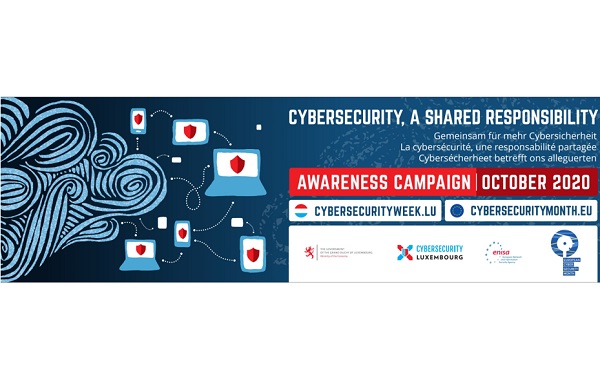
The eighth edition of European Cybersecurity Month (ECSM) began today, Thursday 1 October 2020, across the European Union (EU); ECSM is the annual awareness campaign organised by the European Union Agency for Cybersecurity (ENISA), the European Commission and EU Member States, including Luxembourg.
Luxembourg's Minister of the Economy, Franz Fayot, paid tribute to both the European and national efforts undertaken in the last two decades to promote the importance of collaboration in the field of information security. He commented: "Cybersecurity is certainly not an individual challenge, but a collective challenge and above all a shared responsibility".
In Luxembourg, the Ministry of the Economy supports the ECSM through the Cybersecurity Week Luxembourg which will take place from 19 to 29 October 2020, highlighting the achievements and services of around 30 national and international companies, professional associations and public institutions. This year, the events will be specially focussed on business resilience and the strengthening of the cybersecurity ecosystem, the keystone of a trusted digital economy for the country.
Bringing innovation and growth, the digital transition is considered both an opportunity and a challenge for cybersecurity, as it offers cybercriminals a rapidly growing attack surface. The current context, marked by the measures relating to the COVID-19 pandemic, adds to the potential level of anxiety of the population and businesses brought to become more familiar with an online way of life and work. The risks thus increase of seeing criminals take advantage of this situation.
This is why, at European level, the 2020 edition of cybersecurity month reminds companies and citizens to remain vigilant ("think before you click") in the face of digital scams, such as fraudulent calls, SMS or emails, or when carrying out professional and personal transactions online. On the other hand, it promotes the acquisition of digital skills for secure use of the internet.
In the Grand Duchy, the ECSM is supported by the ABBL (Association of Banks and Bankers), the BEE SECURE initiative, the Restena Foundation, the Grand Ducal Police and the University of Luxembourg, among others.









